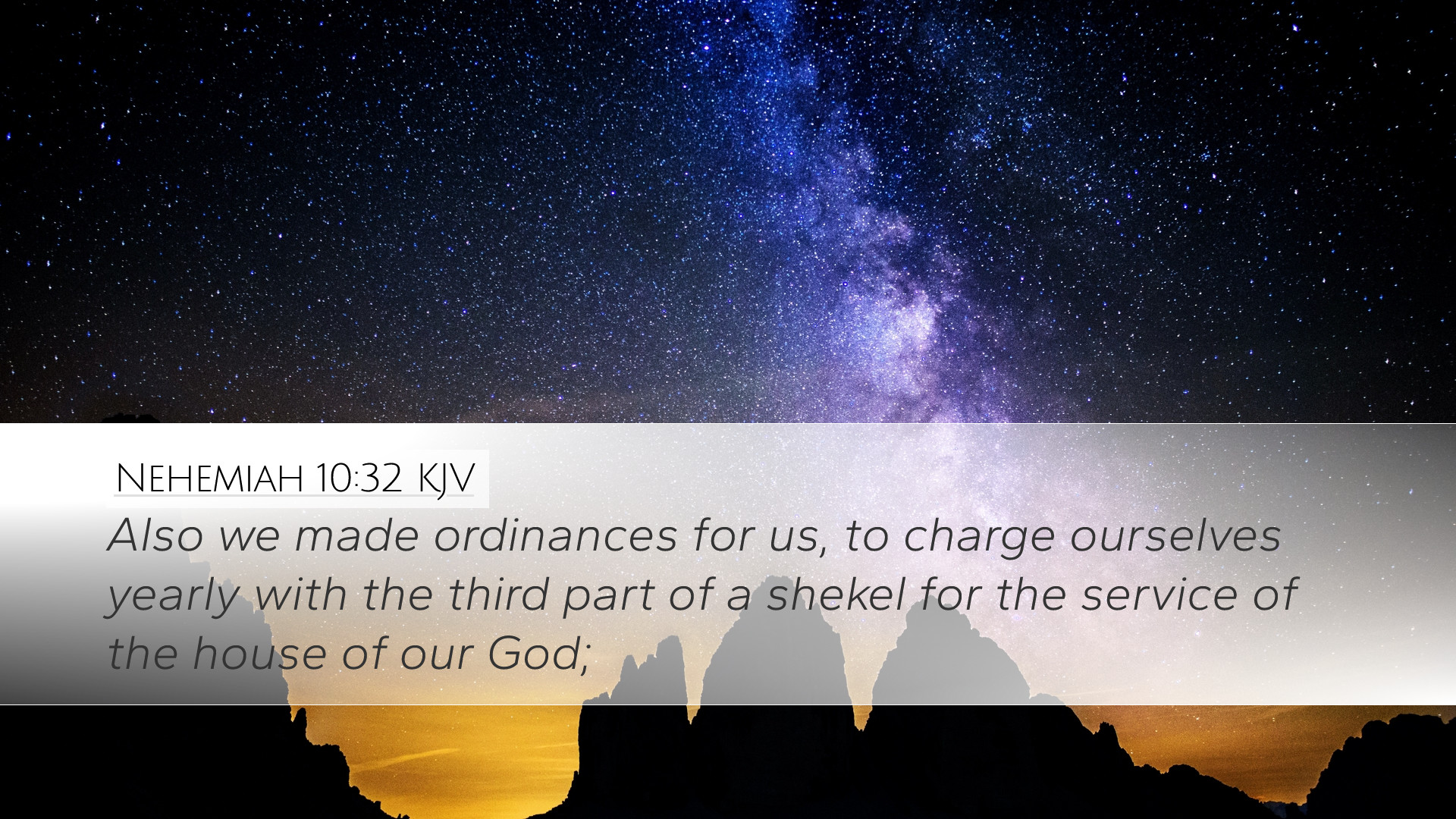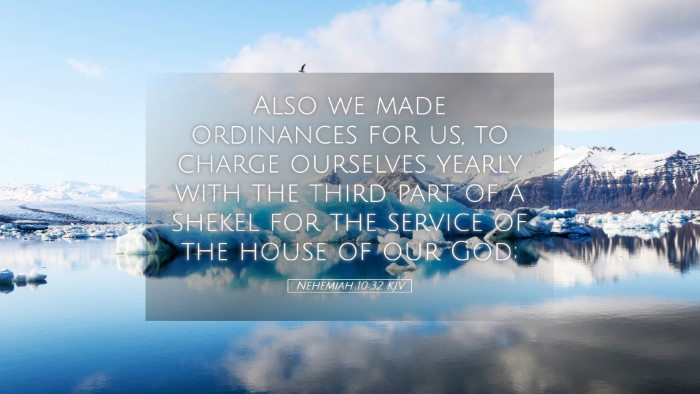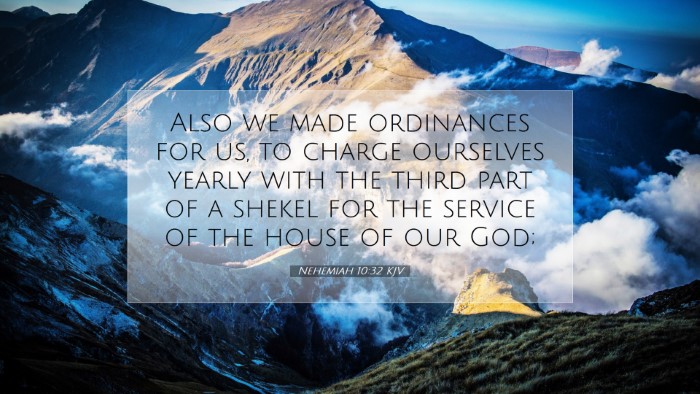Old Testament
Genesis Exodus Leviticus Numbers Deuteronomy Joshua Judges Ruth 1 Samuel 2 Samuel 1 Kings 2 Kings 1 Chronicles 2 Chronicles Ezra Nehemiah Esther Job Psalms Proverbs Ecclesiastes Song of Solomon Isaiah Jeremiah Lamentations Ezekiel Daniel Hosea Joel Amos Obadiah Jonah Micah Nahum Habakkuk Zephaniah Haggai Zechariah MalachiVerse
Nehemiah 10:1 Nehemiah 10:2 Nehemiah 10:3 Nehemiah 10:4 Nehemiah 10:5 Nehemiah 10:6 Nehemiah 10:7 Nehemiah 10:8 Nehemiah 10:9 Nehemiah 10:10 Nehemiah 10:11 Nehemiah 10:12 Nehemiah 10:13 Nehemiah 10:14 Nehemiah 10:15 Nehemiah 10:16 Nehemiah 10:17 Nehemiah 10:18 Nehemiah 10:19 Nehemiah 10:20 Nehemiah 10:21 Nehemiah 10:22 Nehemiah 10:23 Nehemiah 10:24 Nehemiah 10:25 Nehemiah 10:26 Nehemiah 10:27 Nehemiah 10:28 Nehemiah 10:29 Nehemiah 10:30 Nehemiah 10:31 Nehemiah 10:32 Nehemiah 10:33 Nehemiah 10:34 Nehemiah 10:35 Nehemiah 10:36 Nehemiah 10:37 Nehemiah 10:38 Nehemiah 10:39

